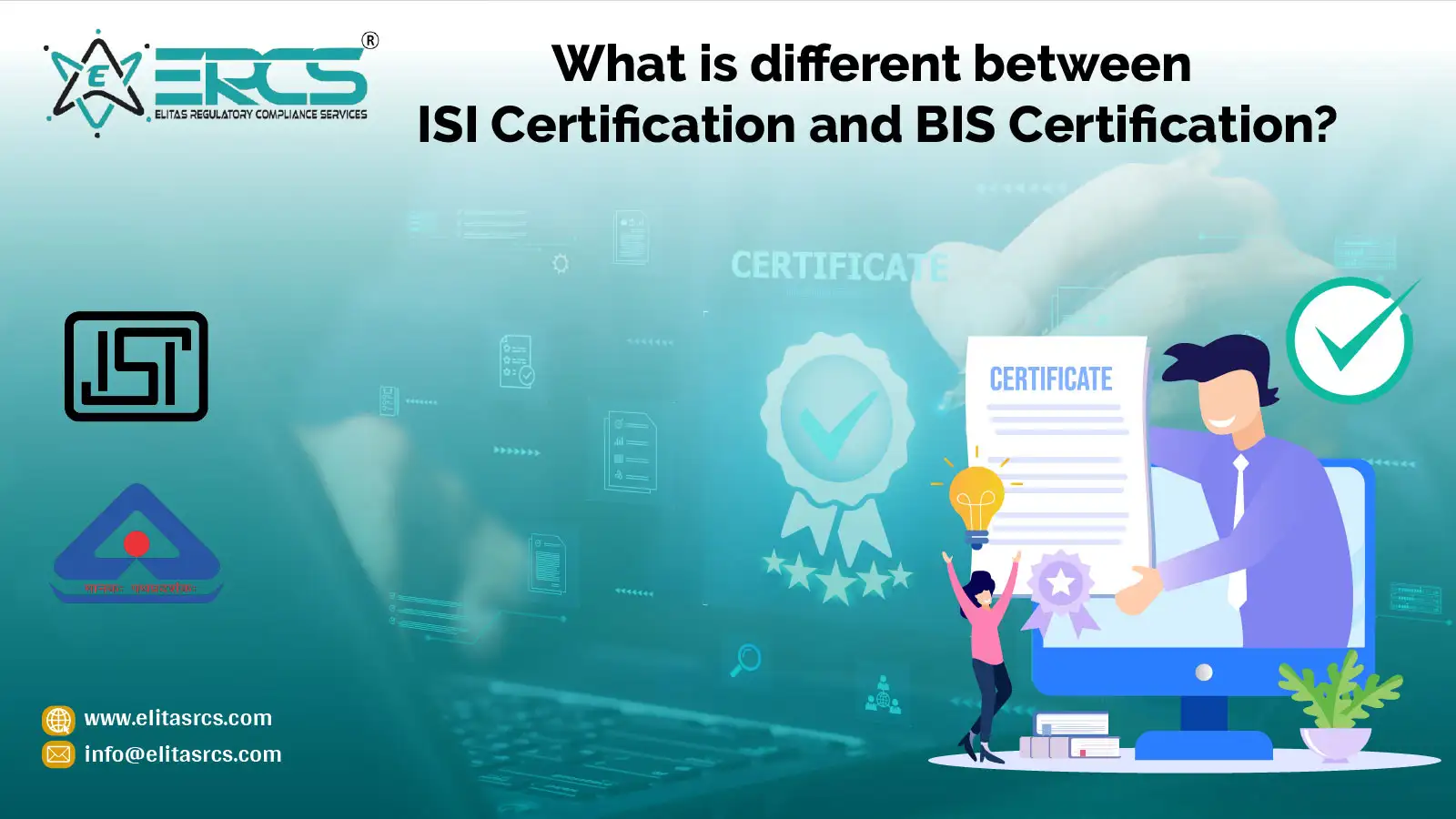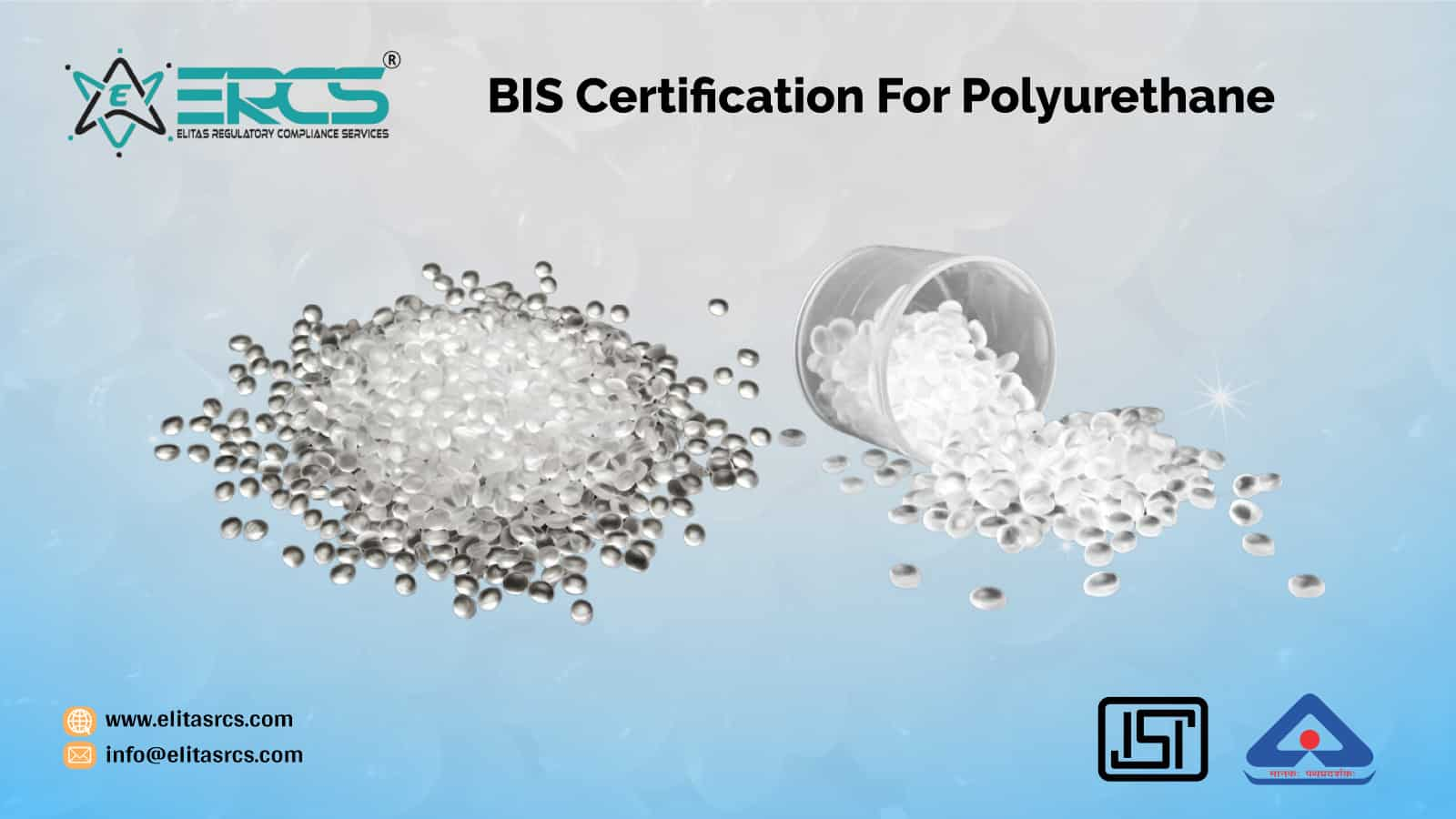ISI Certification vs. BIS Certification: A Comparison Guide
- 21 Sep, 2024
- ISI Certification (BIS)

Have you recently made up your mind to purchase a brand-new product? Are you a little confused about the two different certifications you came across with? Worry not! This blog will specifically illustrate every aspect of ISI and BIS certifications, leaving you with a clear knowledge of the former. First, let us make it clear that both certifications are awarded to different products to provide consumers with a sense of reliability and safety regarding those goods.
What is BIS Certification?
The term BIS stands for Bureau of Indian Standards Certification. It was issued by BIS and serves as a bridge between consumers and manufacturers in terms of reliability, safety, and quality. A bill was introduced in 1986, in parliament regarding the same. The certification process includes a wide range of products, including electronics, construction materials, and food items. If a product has a BIS ISI mark, it complies with Indian Standards and also assures the quality of the same.
What is ISI Certification?
This ISI certification, issued by the Bureau of Indian Standards, assures the product has met the quality and safety standards set up in India. In cases like electrical appliances, construction materials, and consumer goods, ISI certification is highly integral because it ensures that these types of products are safe to use. When a manufacturer gets certified under ISI, it surety guarantees that it has taken into consideration the quality, thereby improving the decision-making capability of a consumer.
An overview of ISI Certification and BIS Certification:
1. History: The Indian Standards Institute was the first standards body of India. It was reformed, and instead of the Indian Standards Institute, it was renamed the Bureau of Indian Standards (BIS) in 1986 with standards and certification functions.
2. ISI-mark: It was a certification mark for products to stand firm with specific Indian standards. Today, the BIS governs the process of marking the ISI on products to determine conformity by offering products to formulated safety and quality standards.
3. Authority Standardizing: BIS is the national standards body that has the task of preparing and approving standards with which a product bearing the 'Isi-mark' would determine its subsequent conformity.
4. Consumer Confidence: Both the ISI mark and BIS certification bring satisfaction to consumers as far as the safety and quality of products on the market are concerned.
ISI Certification vs. BIS Certification: What's the Difference?
Feature | ISI Certification | BIS Certification
Definition | A mark indicating conformity to Indian standards for specific products. | A comprehensive certification system by BIS covers a wide range of products, services, and systems.
Authority | Originally by the Indian Standards Institute; now managed by BIS. | Managed by the Bureau of Indian Standards, the national standards body of India.
Scope | Primarily for specific consumer products (e.g., electrical appliances, food items). | Covers a wide range of categories, including electronics, textiles, machinery, and management systems.
Standards | Based on specific Indian Standards (IS). | Includes IS standards as well as international standards (ISO, IEC).
Application Process | Involves product testing, factory inspection, and evaluation against IS standards. | Includes a more extensive process for product and system evaluations, as well as documentation reviews.
Purpose | Ensures the quality and safety of products for consumer protection. | Promotes standardization, quality assurance, and consumer safety across various sectors.
Market Recognition | Originally recognized within India, mandatory for certain products. | Widely recognized both nationally and internationally; enhances export potential.
Validity Period | Typically valid for a specific period, requiring renewal after testing and evaluation. | Valid for a specified duration, often requiring periodic audits and renewals.
Labeling | Products carry the ISI mark for consumer recognition. | Products may carry the BIS certification mark; management systems may have specific logos.
Cost | Generally lower costs are associated with ISI certification for individual products. | May involve higher costs due to comprehensive assessments and management system audits.
Types of Certification | Primarily product-specific certification. | Includes product certifications, management system certifications (e.g., ISO 9001), and a scheme for hallmarking.
Enforcement | Regulated by the Bureau of Indian Standards; penalties for non-compliance. | Strong enforcement mechanisms; are mandatory for certain sectors to ensure compliance with standards.
Consumer Trust | Increases consumer confidence in the safety and quality of specific products. | Enhances overall brand reputation and trust through demonstrated commitment to quality.
Conclusion
Both BIS and ISI certifications serve important purposes in India regarding the quality and safety of a product. While BIS is the parent certification related to standardization, ISI marks point towards compliance with such standards regarding several products. To this end, such certifications make it relatively easier for the consumer to decide whether they want a particular good or not, thus boosting their confidence in the quality of the goods they buy. Therefore, certification based on safety and reliability marks another feature that will increase consumers' confidence in a marketplace, trusting both the consumer and the manufacturer.
Share:
Blog Categories
Latest Blogs
-

-

-

-

15 Oct, 2024 BIS Certification for Polyurethane IS 17397 (Part 1)
-

Need Expert Advice?
Feel Free to Connect with Us
Prompt reply within hours
Continued support
Experience Consultants at ERCS are ready to assist you at every step of compliance so as to provide you the best services in India. Get complete information about the certification that your product need to enter in Indian market and build a good consumer base.